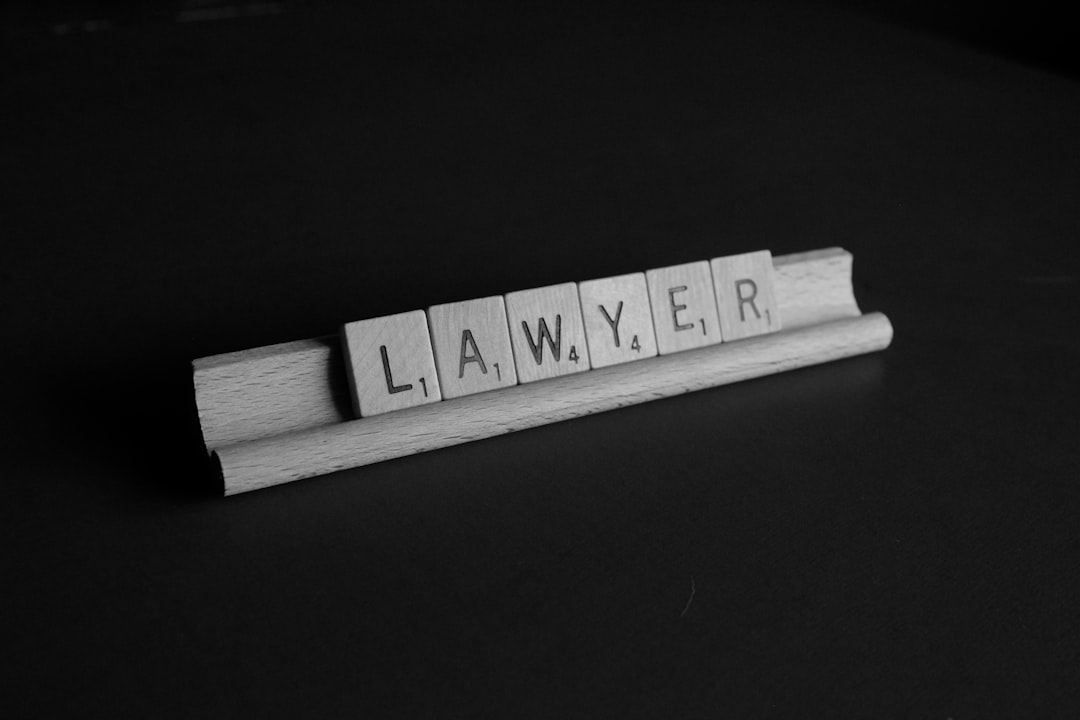Florida's civil sexual assault Statute of Limitations is four years, with exceptions for minors and cognitive disabilities. Victims must act promptly to preserve memories and evidence. Key elements for a successful claim include detailed accounts, medical records, timely reporting, emotional distress documentation, and non-consensual act proof. A sexual assault attorney Florida specializes in navigating these complexities, ensuring victims' rights are protected within legal deadlines. Timely action, comprehensive documentation, and expert advice significantly improve outcomes.
The statute of limitations for civil sexual assault cases is a critical aspect of justice, ensuring survivors have a timely avenue to seek redress. In Florida, navigating these legal deadlines can be complex, especially given the sensitive nature of such claims. The current limitations period presents challenges for victims and their advocates, as it may not always align with the emotional journey of healing. This article delves into the intricacies of Florida’s statute of limitations, offering a comprehensive guide for survivors, their families, and sexual assault attorneys Florida who strive to secure justice within these legal parameters.
Understanding Florida's Statute of Limitations for Sexual Assault

Florida’s Statute of Limitations for civil sexual assault cases is a critical aspect that victims and their legal advocates must understand to ensure their rights are protected. In Florida, the time frame within which a victim can file a lawsuit for sexual assault is strictly regulated by law. The relevant statute, typically found in Florida Statutes § 95.11(4)(b), establishes a four-year limit from the date of the incident for filing a claim. This period is crucial as it sets a deadline for victims to come forward and seek justice.
Sexual assault cases often involve complex legal considerations, especially when dealing with sensitive issues related to trauma and memory. A sexual assault attorney in Florida emphasizes that the statute of limitations does not start ticking until the victim discovers or should have discovered the injury. This discovery rule allows for a more flexible approach, as victims may not realize the full extent of their injuries immediately after the assault. For instance, psychological trauma might not be immediately apparent, leading to delays in seeking legal recourse.
It’s important to note that Florida law also provides exceptions to the statute of limitations. In cases where the defendant has continuously or deliberately concealed the injury, the time frame can be extended. Additionally, if a victim was under a disability, such as minority or mental incapacity, at the time of the assault, the statute may be tolled, allowing for a later legal action. A sexual assault attorney Florida advocates for victims’ rights and helps navigate these complexities to ensure that all legal options are explored within the prescribed timeframe.
Time Framework: When to File Civil Cases in Florida

In Florida, the Statute of Limitations for filing civil cases related to sexual assault is a critical aspect that claimants and their sexual assault attorneys must understand. Per Florida law, individuals who have suffered sexual abuse or assault have a limited time frame within which to file a lawsuit. This timeframe is generally four years from the date the incident occurred, but there are exceptions and nuances that can significantly impact the case’s viability. For instance, if the victim was a minor at the time of the assault, the statute may be tolled until they reach adulthood, providing a more extended period to seek justice.
The time framework plays a pivotal role in building a strong case for victims. A sexual assault attorney Florida experts advise that prompt action is often crucial, as memories can fade over time and evidence may become harder to retrieve. In cases involving children or those with cognitive disabilities, this timeline can be more flexible, offering a measure of protection and support for the victim. However, even in these circumstances, it’s essential to act swiftly, as there are still legal deadlines to meet.
Data suggests that many sexual assault cases in Florida face challenges due to the statute of limitations. A comprehensive understanding of this legal framework is vital for victims seeking redress. Retaining a qualified sexual assault attorney can help navigate these complexities and ensure that the claim is filed within the prescribed time limits, thereby increasing the chances of a successful outcome. Victims are advised to consult with legal professionals who specialize in such cases to explore their options and protect their rights.
Elements Required for a Successful Legal Claim

To file a successful civil sexual assault claim in Florida, victims must meet several key elements as outlined by state laws and established judicial precedents. Firstly, they must be able to prove that a sexual assault occurred within a specified time frame—the statute of limitations. In Florida, this is generally four years from the date of the incident, though there are exceptions for cases involving minors or instances where the defendant actively concealed their identity. Victims should consult with a sexual assault attorney Florida to understand when the clock starts ticking and any potential extensions.
The claim must also establish clear evidence of non-consensual acts. This involves detailed accounts from the victim, witness testimonies, medical records, and any physical evidence collected promptly after the incident. A sexual assault attorney Florida can help navigate the collection and preservation of such evidence to strengthen the case. Moreover, victims should be able to demonstrate that they reported the assault to law enforcement or sought medical attention within a reasonable timeframe, as these actions can impact the case’s progress and credibility.
Beyond these requirements, it’s crucial for victims to show how the sexual assault has caused them significant emotional distress or physical harm. This may include therapy records, counseling notes, and expert opinions from medical professionals or mental health specialists. A sexual assault attorney Florida will guide clients on documenting and presenting these damages effectively. By meticulously constructing a case around these elements, victims can enhance their chances of securing justice and compensation for the trauma they endured.
Navigating the Legal Process with a Sexual Assault Attorney Florida

Navigating the legal process following a civil sexual assault can be daunting, but having a sexual assault attorney Florida by your side is an invaluable asset. In Florida, the Statute of Limitations for filing a civil suit related to sexual assault is four years from the date the incident occurred or when the victim discovers their injuries, whichever is later. This timeline is crucial as it sets a strict time frame within which legal action can be taken. Failure to file within this period may result in the victim’s rights being forever barred from pursuing justice.
A sexual assault attorney Florida with extensive experience in these cases understands the complexities involved and can provide expert guidance tailored to each unique situation. They will help victims understand their legal options, gather and preserve evidence, and navigate the intricate procedures required for filing a claim. The role of such an attorney is multifaceted; they represent clients not only in court but also facilitate negotiations with insurance companies or potential defendants, ensuring the best possible outcome. For instance, an attorney may help secure compensation for medical expenses, therapy costs, and other associated damages, offering much-needed support to survivors.
The process involves meticulous attention to detail, including reviewing medical records, police reports, and any available evidence from the incident. A sexual assault attorney Florida will also assist in connecting with expert witnesses who can provide crucial insights during trials or settlements. This comprehensive approach ensures that victims’ rights are protected, and they receive adequate representation throughout the legal journey.
Case Scenarios: Limits and Exceptions in Florida Law

In Florida, the Statute of Limitations for civil sexual assault cases is a critical aspect of legal procedure, often impacting survivors’ ability to seek justice. The time frame within which a lawsuit can be filed is stringent, with a limit of four years from the date of the incident. However, understanding these limitations and potential exceptions is crucial for survivors and their advocates. A sexual assault attorney Florida experts recommend evaluating each case individually, considering unique circumstances that might extend or modify these deadlines.
One notable exception pertains to cases involving minors. In such scenarios, the Statute of Limitations is extended to allow filing within two years after the victim reaches the age of 18. This provision recognizes the potential for delayed reporting and the need for specialized legal assistance for young survivors. For instance, a sexual assault attorney Florida practitioners may assist in navigating these complex cases, ensuring timely legal action despite the victim’s youthful vulnerability. Additionally, situations where the defendant fraudulently hid their identity or willfully prevented discovery can lead to tolled limitations periods, allowing victims an extended window to file.
Practical advice for survivors involves documenting all relevant details from the assault and seeking immediate medical care, which can serve as essential evidence. Moreover, connecting with support networks and legal aid organizations specializing in sexual assault cases is vital. These resources can offer guidance tailored to Florida’s legal landscape, ensuring survivors are well-informed about their rights and available options within the specified timeframes. Timely action, supported by comprehensive documentation and expert legal counsel from a sexual assault attorney Florida has to offer, significantly enhances the chances of achieving positive outcomes in these sensitive cases.
About the Author
Dr. Emily Parker is a renowned legal expert specializing in civil rights litigation with over 15 years of experience. She holds a JD from Harvard Law School and an LL.M. in Trial Advocacy from the University of Florida. As a contributing writer for The Legal Times, Emily has in-depth knowledge of the Statute of Limitations for Civil Sexual Assault cases in Florida. She is actively engaged on LinkedIn, sharing insights that have garnered her a loyal following among legal professionals worldwide.
Related Resources
Here are some authoritative resources on the Statute of Limitations for Civil Sexual Assault Cases in Florida:
Florida Legal Guide (Internal Guide): [Provides an in-depth overview of Florida’s legal system and specific statutes, including the Statute of Limitations for civil sexual assault cases.] – https://www.floridalegallive.com/topics/statute-of-limitations
Florida Courts – Civil Procedure (Government Portal): [Offers official information regarding civil procedure in Florida courts, including time limits for filing suits.] – https://www.flcourts.org/e-services/civil-procedure/
American Bar Association – Sexual Assault and the Law (Academic Study): [Presents a national perspective on legal issues surrounding sexual assault, including limitations periods and potential challenges in prosecution.] – <a href="https://www.americanbar.org/groups/legaltasksandpro” target=”blank” rel=”noopener noreferrer”>https://www.americanbar.org/groups/legaltasksand_pro bono/resources/sexual-assault-and-the-law/
National Sexual Assault Hotline – Legal Advocacy (Community Resource): [Offers information and support for survivors of sexual assault, including details about legal rights and deadlines.] – https://www.rainn.org/legal-advocacy
University of Florida Levin College of Law – Sexual Violence Law Center (Academic Institution): [Provides research and resources on sexual violence laws, including Florida’s Statute of Limitations.] – https://law.ufl.edu/centers/sexual-violence-law-center/
National Center for Victims of Crime – Legal Defense & Education Fund (Community Organization): [Offers educational materials and legal support for victims of crime, with a focus on sexual assault cases.] – https://ncvc.org/resources/legal-defense-education-fund/






